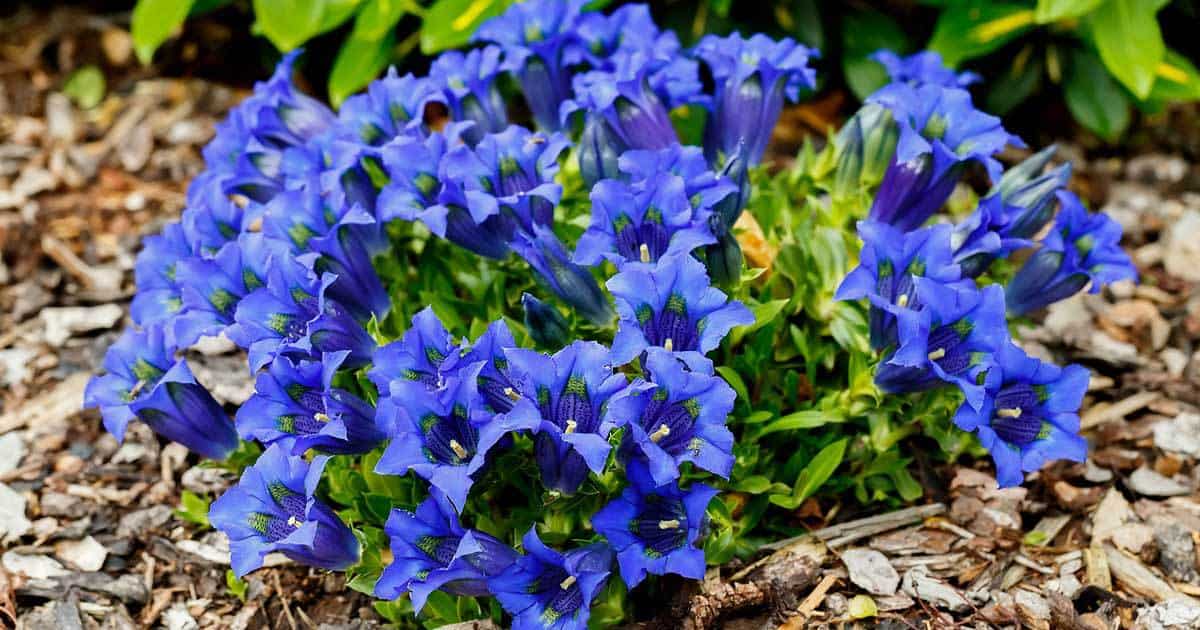Gentians are a type of hardy plant that are highly regarded for their stunning blue flowers. Legend has it that Gentius, King of Illyria, discovered the immune-boosting and digestive benefits of gentians, which is why they are named after him. These days, gentians are not only used in herbal medicine but also as a flavouring in bitters. They belong to the Gentianaceae family and have the botanical name Gentiana. Gentians are native to colder climates around the world with many found in mountainous regions. There are over a hundred species globally, including annuals, biennials, and perennials. The types commonly grown in gardens are perennial, and they bloom in either spring, summer, or autumn, depending on the species, producing trumpet, bell, or urn-shaped flowers.


Once gentians are established, they are low-maintenance plants that only require occasional watering during dry spells. If you are growing them in pots, be sure to water them regularly to keep the compost evenly moist. However, it is best to use rainwater for gentians since tap water can contain lime, which is not ideal for these plants, especially in areas with hard water.
For carpet-forming varieties, it’s important to trim back faded flower stems, while leaving the basal rosette of foliage intact since it is evergreen. Taller border gentians should be cut back in autumn, removing dead growth at the ground level.
If you’re looking to propagate gentians, there are a few methods you can try. One way is to divide established clumps in the spring or autumn, making sure each section has a good root system. Another method is to take softwood cuttings in the early summer and root them in a moist, well-draining soil. You can also sow seeds in autumn or early spring, but keep in mind that gentian seeds can have low germination rates and may need special treatment, such as stratification, to improve their chances of sprouting.

To propagate gentians, one can divide larger species or remove outer portions of mat-forming types. However, it is important to be cautious as gentians do not like being disturbed. Stem rot is a common issue that can be avoided by growing these plants in well-drained soil. To prevent slug and snail damage, surround the plants with coarse grit which also helps with drainage. Although gentians are available in garden centres, it is recommended to look for a wider range online or from specialist nurseries. Before purchasing, make sure to check the pH of your soil and choose the best variety for your garden. Some places to buy gentians include Thompson Morgan, Crocus, Van Meuwen, and Edrom Nurseries.
